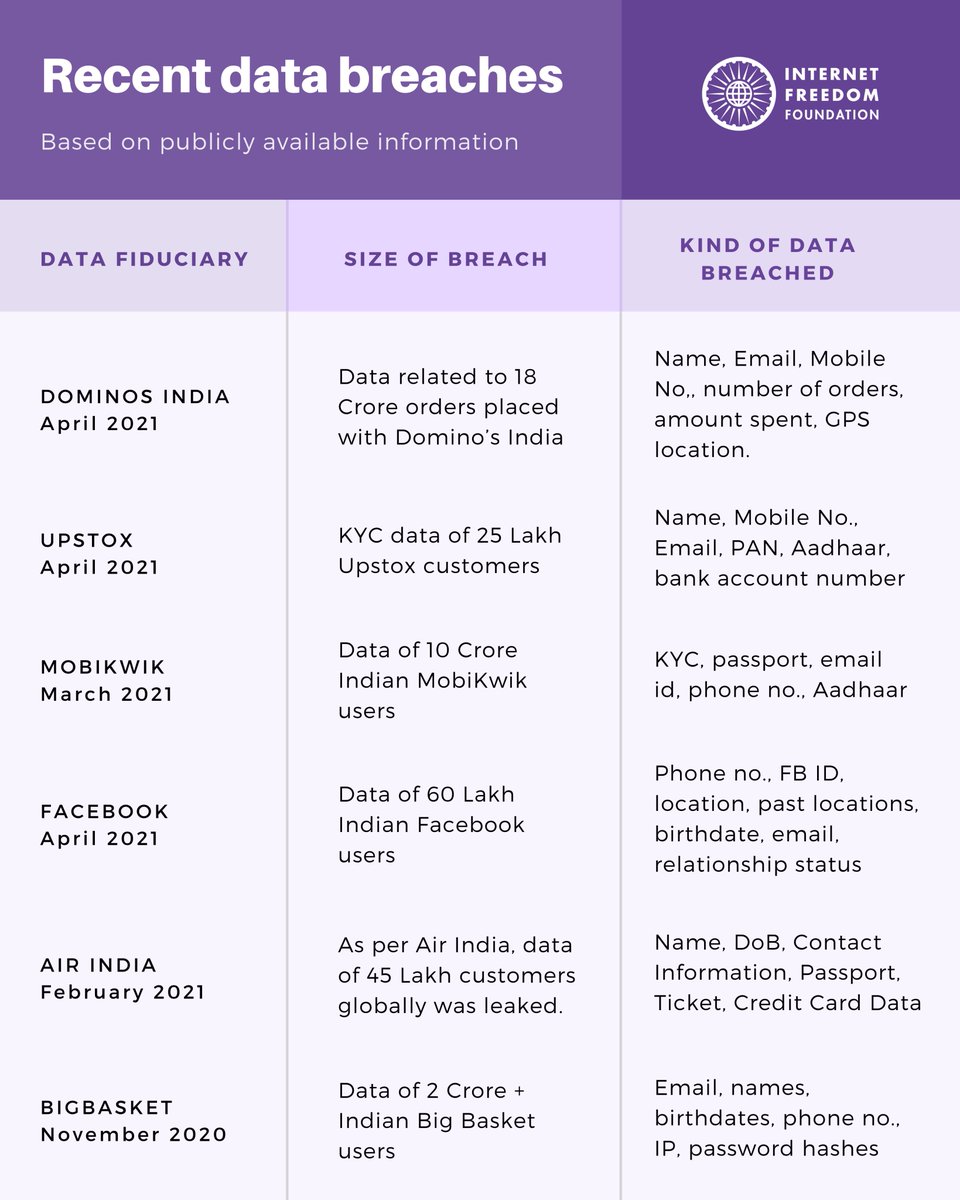
With over 2.6 million users in India, Clubhouse is growing in popularity- but we are concerned about how it fares in terms of protecting your human rights. Today we bring you our assessment of the app and suggestions on how it can improve its policies.
1/n
internetfreedom.in/clubhouse-how-…
1/n
internetfreedom.in/clubhouse-how-…
Firstly, reports suggest that government law enforcement agencies such as the NIA, CBI, and IB are monitoring conversations on Clubhouse. We have filed an RTI with the Ministry of Home Affairs to determine the veracity of these reports.
2/n
thequint.com/tech-and-auto/…
2/n
thequint.com/tech-and-auto/…
Clubhouse has not provided sufficient safeguards against rising hate speech and disinformation in India, and is not respectful of user privacy. We believe that a social media platform that was rolled out in 2020 should have accounted for these concerns.
3/n
3/n

After pushback, Clubhouse came up with a privacy policy. But concerns with its ability to secure users' data remain - recent reports indicate that scraped data of more than 1.3 million Clubhouse users was posted on a popular hacker forum.
4/n
4/n
The amount of personal data Clubhouse collects is excessive. It is against principles of data minimisation which require Clubhouse to collect only as much information as is necessary to provide its services. Note here how the right to informational privacy is also undermined.
5/n
5/n

Clubhouse also shares its invasively collected data with vendors, service providers, and the State, without you really knowing how and why. There's also nothing that prevents it from monetising your data yet, especially with its new feature for 'paid exclusive content'.
6/n
6/n
Clubhouse records every conversation for 'investigation purposes,' claiming to delete them immediately if there's no complaint. But we don't know the SOP around such investigation & the ambit of the recordings. Consent, privacy & transparency - these rules violate it all.
7/n
7/n
While there's server-side encryption for retained conversations, regular ones are unprotected. @stanfordio reported about data spillage to a China-based company, giving back-end support to Clubhouse. With no Indian data protection law, State surveillance threats loom large.
8/n
8/n
Clubhouse needs to improve its content moderation practices to combat hate speech and safeguard privacy at the same time. For this, it doesn't just require independent assessments of its human rights implications - Clubhouse needs to adopt a new, robust human rights policy.
9/n
9/n
The policy should provide for an independent civil rights audit similar to the one Facebook volunteered for in the US. Social media platforms hold immense power in regulating speech - it is critical that there be independent evaluations of how their regulation happens.
10/n
10/n
As a platform that buttresses free and open conversations, @Clubhouse is posited as an app that empowers people and facilitates democratic interactions between people across diverse socio-cultural milieu. We hope that Clubhouse considers our recommendations!
11/n
11/n
• • •
Missing some Tweet in this thread? You can try to
force a refresh






